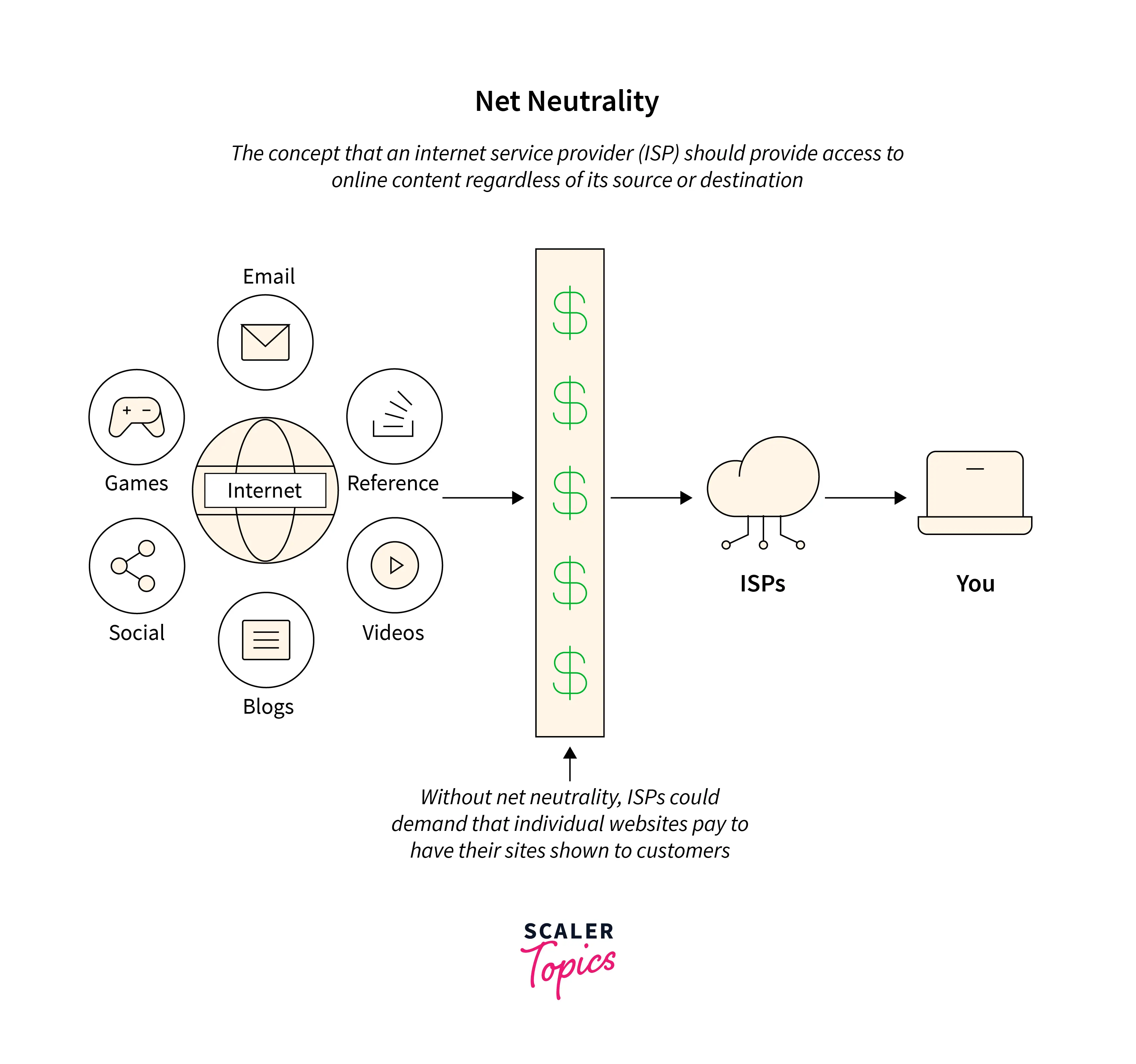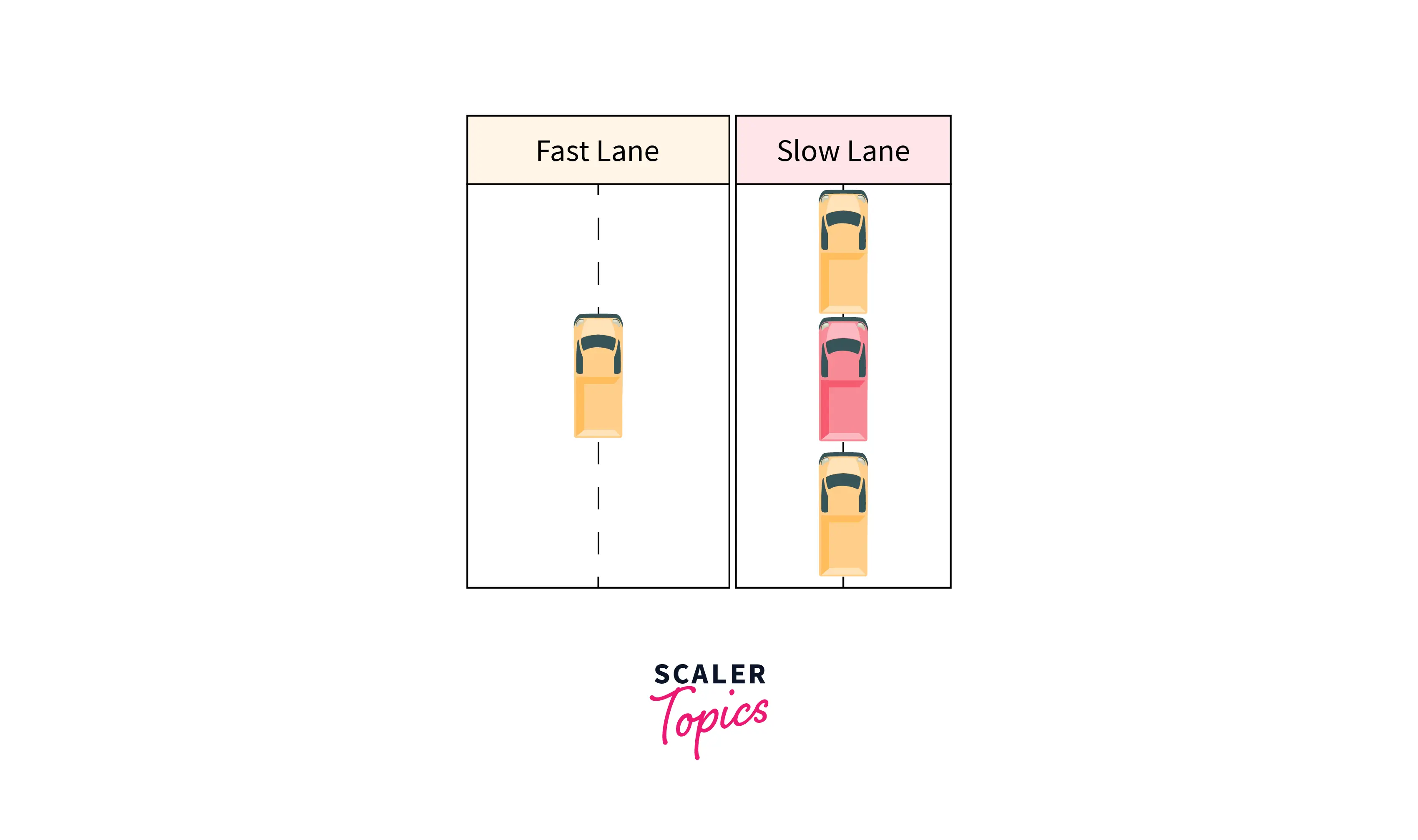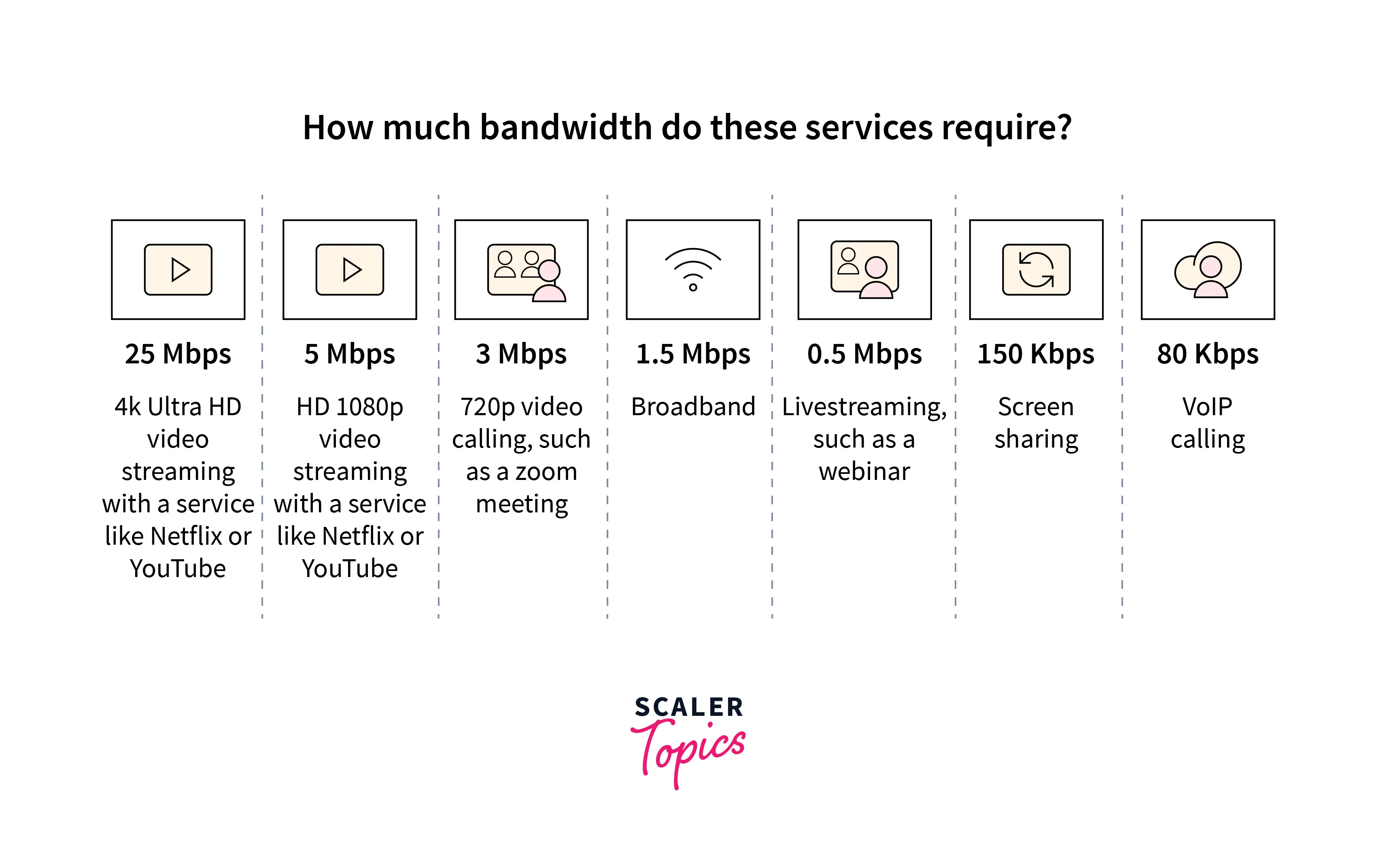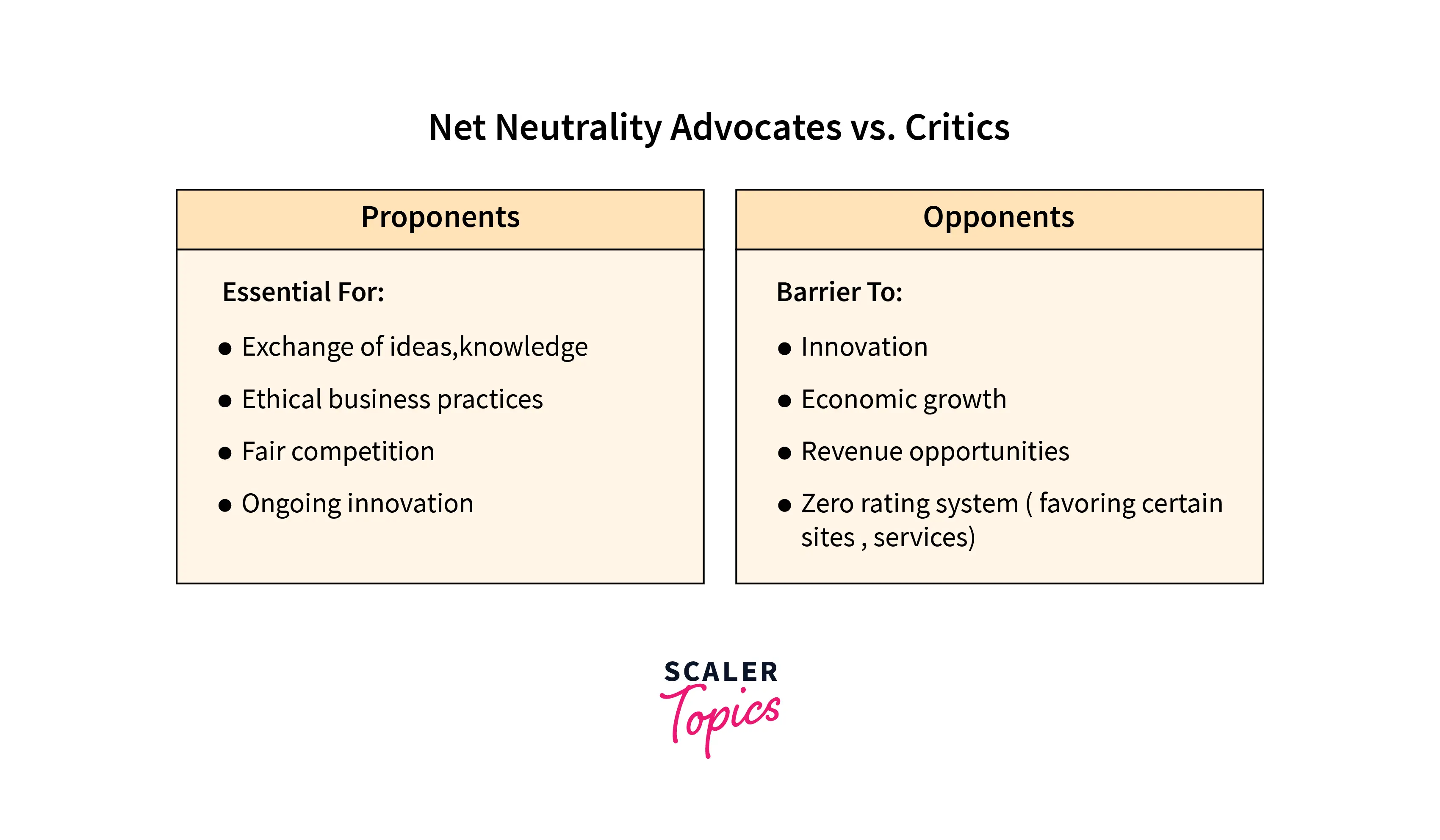Net Neutrality is the idea that internet service providers such as Reliance Jio and Indian Airtel should treat all content streaming through their cables and mobile towers equally. This means they should not be able to move some data into fast lanes while blocking or otherwise discriminating against other data. In other words, these businesses should not be able to prevent you from using a service like Skype or slow down Netflix or Hulu to persuade you to keep your cable package or switch to a rival video-streaming provider.
What is Net Neutrality, and Why is It Important?

The idea of net neutrality is that everyone should have access to an open, equal internet, regardless of the platform, device, application, or content they use. The idea’s proponents contend that all businesses, including internet service providers (ISPs), must treat users and internet data equally. For the sake of their interests, they shouldn’t limit access, slow down faster access, or block content for particular users. Additionally, ISPs shouldn’t commit to exclusive agreements with businesses to grant them faster network access or speeds.

Net neutrality supporters have long argued that maintaining an open playing field on the internet is critical for innovation. If internet providers pick favorites online, innovative companies and technology may never have a chance to prosper. For example, if internet service providers had prohibited or severely limited video streaming in the mid-2000s, we might not have Netflix or YouTube today. Other supporters emphasize the relevance of net neutrality to free expression: a few large telecommunications providers control the broadband market, giving them immense power to suppress particular viewpoints or confine online speech to those who can pay the most.
Although most significant internet providers promised not to block or throttle content before the verdict, all four leading mobile carriers began slowing down at least some video content before the FCC officially abolished the guidelines. Net neutrality supporters are concerned that things could get worse. For example, a broadband provider may allow select businesses to pay for priority treatment on broadband networks. The danger is that enterprises and organizations that can’t afford priority treatment or aren’t given access to it will disappear over time.
The History of Net Neutrality
The vast history of Net Neutrality has seen various ups and down. Its immense history is represented in the following table:
| Year | Event |
|---|---|
| 2003 | Law scholar Tim Wu came up with the term for the first time in 2003. At the time, ISPs began prohibiting users from using VPNs, wireless routers, or installing Wi-Fi hotspots. Tim Wu recognized this as prejudice towards new technologies and was aware that rampant abuse might have long-term effects on technology. He was the pioneer in promoting anti-discrimination laws. |
| 2005 | The FCC initiated the movement favoring net neutrality by forbidding ISPs from blocking legitimate content or restricting customers from using their preferred devices to access the internet. A North Carolina ISP, Madison River, was fined and told to stop preventing internet-based phone calls. |
| 2008 | The FCC ordered Comcast to stop slowing down BitTorrent connections on their network. While denying doing so, Comcast asserted that it is within its rights to determine connection speeds as it deems suitable. Later, a federal judge concurred with Comcast, saying that the FCC had failed to establish its legal authority to enforce its rules. |
| 2010 | The Open Internet Order, which established two categories of internet access—one for fixed-line providers and another for wireless internet—was adopted by the FCC. The directive was met with opposition, including Verizon’s lawsuit launched in January 2011. |
| 2014 | A court decided that the FCC does not have the authority to apply net neutrality rules on services that are not common carriers. |
| 2015 | The FCC released a new Open Internet Order that reclassified ISPs as Title II services and gave them explicit authority to enforce net neutrality. Despite complaints from ISP advocacy organizations, a federal court upheld the guidelines. The guidelines barred ISPs from deliberately changing network speeds to or from specific websites depending on demand or preferences. |
| 2017 | The FCC repealed the Open Internet Order despite attempts by Congress to block it. |
| 2018 | To reinstate net neutrality standards and overturn new regulations, many state attorneys general sued the FCC. |
| 2019 | A federal appeals court held that the FCC has the authority to reclassify ISPs as Title I or II and cannot block state or municipal net neutrality enforcement. Following that, several states, including California, Oregon, and Washington, enacted similar legislation. Several additional states have issued executive orders prohibiting state agencies from doing business with ISPs that do not follow net neutrality principles. |
| 2022 | Despite a political shift and widespread public support for net neutrality, the repeal of net neutrality remains in place. Individual states must now battle for net neutrality. Some states, including California, New Jersey, Oregon, Vermont, and Washington, have already approved net neutrality laws. Although some legislators have indicated support for restoring net neutrality, efforts are now stuck. |
Is There Net Neutrality in India?
In 2017, India enacted some of the world’s most vital net neutrality regulations. Policymakers and Indian activists advocated for net neutrality rules to promote an open internet and widespread internet access for the country’s inhabitants. Service providers who violate these regulations risk losing their operating licenses.
The Future of Net Neutrality
Net neutrality’s future is now in the hands of Congress, the courts, and the states. In January 2018, twenty-one state attorneys general and many consumer advocacy groups sued the FCC to suspend the new rules and reinstate the old ones. In 2019`, a federal court generally found favor of the FCC, but it said the agency couldn’t override state-level net neutrality legislation.
Several states have already passed such legislation. In March 2018, Washington became the first, and Oregon soon after. One of the most comprehensive laws of net neutrality was passed in California, but the regulations are currently on hold because the federal government is suing to stop them. Executive orders prohibiting state agencies from doing business with internet providers who don’t follow net neutrality principles have been passed by the governors of Hawaii, Montana, New Jersey, New York, and Vermont.
Meanwhile, broadband providers will gradually take advantage of their newfound flexibility. They are unlikely to take overt actions to impede or block competing services, especially while courts are still reviewing the FCC’s newest judgment. However, you may expect to see more of the methods that carriers now use, such as allowing their content to bypass data limitations. For example, AT&T allows you to view their DirecTV Now video service without using up your data plan but watching Netflix or Hulu does.
Origins of Net Neutrality
Tim Wu, a professor at Columbia Law School, first used the term “net neutrality” in his June 2002` paper, “A Proposal for Network Neutrality.” Professor Wu explained how the development of home broadband produced a new, challenging regulatory issue in that paper and another published approximately a year later, “Network Neutrality, Broadband Discrimination.”
He asserted that operators of cable and Digital Subscriber Lines (DSL) have a legal right to run their networks as efficiently as possible. However, they should not be permitted to discriminate against specific internet applications and users to advance their objectives or financial advantage. That would lead to “market distortion” harmful to the public interest, impede innovation, and harm enterprises excluded from the market.
By “forbidding broadband operators, absent a showing of harm, from restricting what users do with their internet connection while giving the operator freedom to manage bandwidth consumption and other matters of local concern,” his proposal for net neutrality attempted to strike a balance between the conflicting interests.

Internetwork indicators like the application type or Internet Protocol address were not subject to restrictions. Local indicators, especially bandwidth, may be constrained.
Components of Net Neutrality
No Throttling or “fast lane” Creation
Internet service providers are incentivized to charge consumers and/or businesses (like Netflix) more for faster connection speeds. It suggests that some businesses are prioritized over others who cannot afford to pay for premium services because they can afford higher costs.
Throttling is detrimental to:
- Small enterprises and start-ups that want to expand their online presence but can’t afford the higher fees.
- Companies with high bandwidth usage, such as Google, YouTube, Netflix, and Meta, require fast speeds due to the high volume of users.
- Increased costs may be passed on to the consumer by businesses in the form of higher prices. Therefore, throttling poses a risk to the welfare of consumers.
The agreement between Netflix and Comcast Corporation serves as a perfect example of throttling. Netflix subscribers’ connections and streaming speeds were slow while negotiations were going on, but the speed skyrocketed as soon as an agreement was made between the two firms. It demonstrates how ISPs and telecom companies can monopolize the market to demand high prices.
No Blocking or Banning
A provider of internet services may limit access to particular websites that host content with which it disagrees. The ISP may also prohibit the use of specific websites or technology. For example, before encountering widespread criticism, AT&T banned the usage of Wi-Fi routers.
Such actions may ultimately restrict the use of innovative ideas and cutting-edge technology. Consumers who seek access to banned websites must pay more for information, which lowers welfare. Net neutrality, therefore, mandates that all content be handled equally and that the ISP must not prevent access to legal content.
Net Neutrality Policies
- In 2015, the Obama Administration passed net neutrality legislation and implemented regulations that forbade ISPs like AT&T and Comcast from purposefully accelerating or reducing traffic to or from particular websites based on demand or commercial considerations.
- But in 2017, the Federal Communications Commission (FCC), headed by President Trump, repealed all broadband-related regulations and net neutrality protections while still allowing individual states to enact their open internet laws.
- The Net Neutrality and Broadband Justice Act, introduced in July 2022` by Senators Edward J. Markey (D-Mass. ), Ron Wyden (D-Ore.), and Representative Doris Matsui (CA-06), would reclassify broadband internet access as a telecommunications service under Title II of the Communications Act, granting the FCC the necessary authority to reinstate net neutrality protections.
- The COVID-19 pandemic brought attention to the need for an equitable and accessible broadband future, and the Net Neutrality and Broadband Justice Act grants the FCC the power to outlaw discriminatory online practices like blocking, throttling, and paid prioritization. It also allows the FCC to implement successful broadband policies that improve public safety, increase accessibility, and protect consumers.
Example of Net Neutrality
Several infractions were investigated after the 2017 revocation of net neutrality laws, including:
- Wireless carriers reduced the speed of Netflix and YouTube by taking a small portion of the available bandwidth.
- Verizon’s service throttling hampered the Santa Clara County Fire Department’s capacity to offer emergency assistance during the California wildfires.
- Comcast has implemented new speed restrictions that will reduce all of its mobile plans’ video content to 480p unless consumers pay an additional fee.
Benefits of Net Neutrality
Net neutrality is considered to have been generally successful despite its uneven evolution. According to its proponents, the idea upholds important principles like the following:
- Business freedom and consumer choice:- ISPs have the power to compel companies to pay more money by threatening to block access to specific websites and content. Preferential service agreements put those who cannot afford them at a competitive disadvantage in the customer service market. Net neutrality aims to level the playing field by preventing big, wealthy companies from getting an unfair advantage when they pay ISPs more for unrestricted customer access to their goods or services.
- Information freedom:- Net neutrality encourages free speech and the exchange of ideas. ISPs won’t be able to control or restrict what their customers may access, view, or read online, thanks to net neutrality laws.
- More significant innovation:- Abolishing net neutrality would hinder innovation and raise entry hurdles for smaller businesses. If ISPs favor their favorites, emerging businesses and technologies might never grow.
Factors For and Against Net Neutrality
Net neutrality supporters include:
- Software firms (e.g., Amazon).
- Social networking companies (e.g., Facebook).
- Online streaming service providers (e.g., Netflix and Hulu).
- Others.
One of the most compelling arguments in favor of net neutrality and equal access is that it allows small start-ups and seed-stage businesses to develop online, motivating individuals to innovate and create new goods and enterprises. ISPs limit the emergence of small creative start-ups that cannot afford premium prices by charging higher prices.

For example, if Facebook had charged exorbitant costs for a more significant number of users, it might not have replaced Myspace. Similarly, Netflix may not have grown as rapidly if it had to charge constantly for better streaming quality. Net neutrality supporters also claim that the internet’s free, unrestrained interchange of information and content is critical for democracies.
Internet service providers are generally opposed to net neutrality, as evidenced by litigation brought against the FCC by several ISPs and telecommunications corporations. One of the critical reasons for this is the increased efficiency that traffic shaping provides.
ISPs can allocate more bandwidth and connection speed to websites that produce more income and less bandwidth and speed to websites that do not. This practice is known as traffic shaping. Their overall profitability rises due to the strategy, which encourages companies to invest in long-term innovation and R&D.
A two-tiered internet service model is one that many ISPs prefer since it enables them to charge a premium for priority placement and faster speed via their carrier network pipes. This strategy allows ISPs to legally establish “fast lanes” on the internet that give particular businesses priority treatment to advertise their services to users. The ISP receives additional pay for this privileged treatment.
Conclusion
- Net Neutrality is the idea that internet service providers such as Reliance Jio and Indian Airtel should treat all content streaming through their cables and mobile towers equally.
- The supporters of Net neutrality contend that all businesses, including internet service providers (ISPs), must treat users and internet data equally. For the sake of their interests, they shouldn’t limit access, slow down faster access, or block content for particular users.
- In 2017, India enacted some of the world’s most vital net neutrality regulations. Policymakers and Indian activists advocated for net neutrality rules to promote an open internet and widespread internet access for the country’s inhabitants.
- Tim Wu, a professor at Columbia Law School, first used the term “net neutrality” in his June 2002` paper, “A Proposal for Network Neutrality.”
- The two components of Net Neutrality are as follows:
- No throttling or “fast lane” creation
- No blocking or banning
- Following are the benefits of Net Neutrality:
- Business freedom and consumer choice
- Information Freedom
- More significant innovation
- As a people of the world’s largest democratic country, we also have a strong opinion in support of the idea of Net Neutrality to enhance innovation and free speech.
